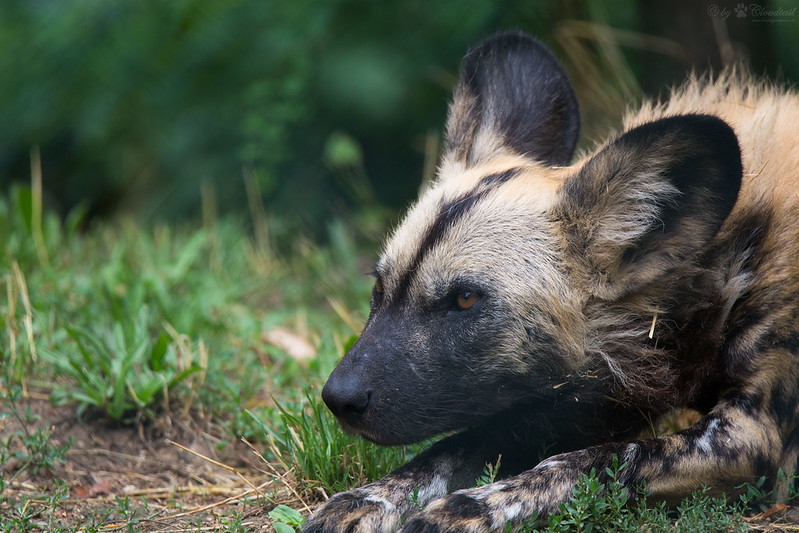All About The Endangered African Wild Dog
Understanding the history of African wild dogs helps raise awareness about their conservation needs. Efforts to protect their remaining populations and habitats are crucial for ensuring the long-term survival of this unique and endangered species.
The endangered African Wild Dog differs from others in its class for example wolves in that they have four toes instead of five. African wild dogs have distinctive coat patterns, characterized by patches of black, yellow, and white fur.
These markings are unique to each individual, acting as a form of identification within the pack. Unlike other large predators, African wild dogs are cursorial hunters, meaning they rely on endurance running to pursue and wear down their prey. They are known for their remarkable stamina, which allows them to cover long distances during hunts.

All About The Endangered African Wild Dog also known as Lycaon pictus, Cape Hunting Dog, and the Painted Hunting Dog.
African wild dogs belong to the Canidae family, which also includes domestic dogs, wolves, and foxes. Fossil evidence suggests that the ancestors of African wild dogs diverged from the ancestors of other canids around 3 to 4 million years ago.
The endangered African Wild Dog, Lycaon Pictus is a canidae, a group of meat-eaters that includes dogs, wolves, foxes, coyotes, jackals. African Wild Dog also known as the African Painted Dog is found only in Africa living in savannas and lightly wooded areas. Initially, African wild dogs had a much broader distribution across Africa, extending from North Africa to southern Africa. Fossil records indicate their presence in various regions, including Tanzania, Ethiopia, Algeria, South Africa, and more.
African Wild Dogs have disappeared from much of their former range. Their population is currently estimated at approximately 6,600, Historical data indicate that African Wild Dogs were formerly distributed throughout sub-Saharan Africa, from the desert to mountains.
The endangered African Wild Dog coats are spotted in shades of brown, black and beige, no two dogs are alike. African Wild Dogs is long-legged, with enormous jaws with large erect bat-like ears and dark brown circles around their eyes.
African Wild Dogs are usually on the move over a very large range however, the African Wild Dog is listed on the endangered species list due to threats to its survival from predators, disease, and the most dangerous predator, humans. An endangered species is one that faces a very high risk of vanishing, likely to become extinct.
The African Wild Dog is native to the African countries of Angola, Benin, Botswana, Burkina Faso, Central African Republic, Chad, Ethiopia, Kenya, Malawi; Mozambique, Namibia, Niger, Senegal, South Africa, South Sudan, Sudan; Tanzania, Zambia and Zimbabwe.

|
| African Wild Dogs |
Together we build awareness that boost harmony, education, and success, below are more links to articles you will find thought provoking.
- African Country Names Your Saying Wrong
- What do Waist Beads Symbolize in Africa?
- About African Healers and Witchdoctors
- Hurricanes are Angry African Ancestors
- Highest Temperature and Lowest Temperature in Africa
- About African Night Running



